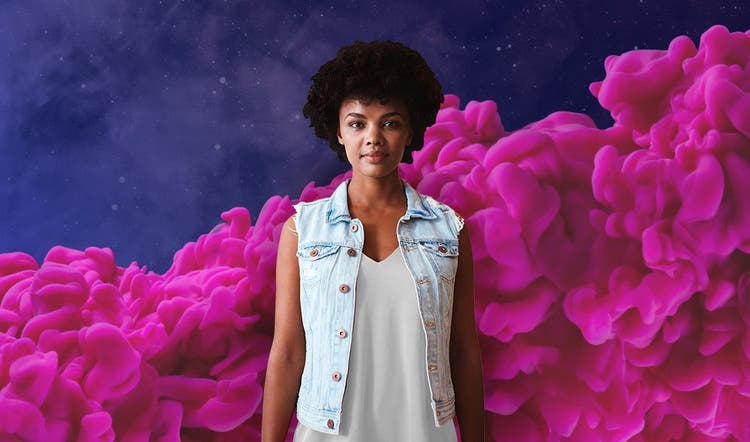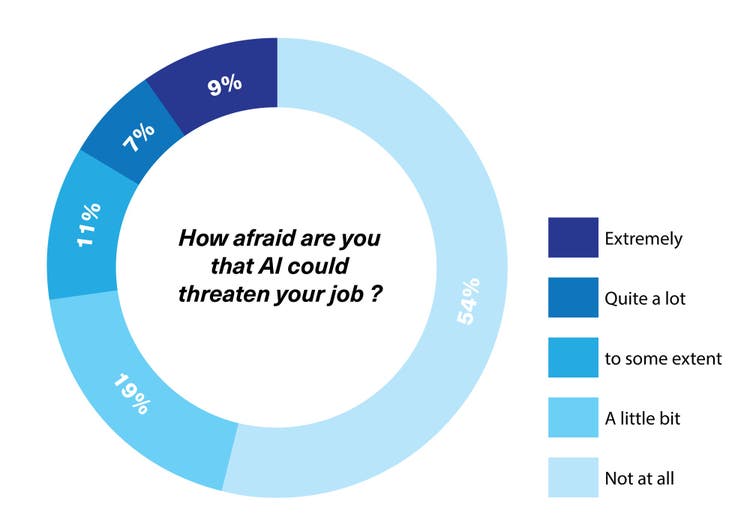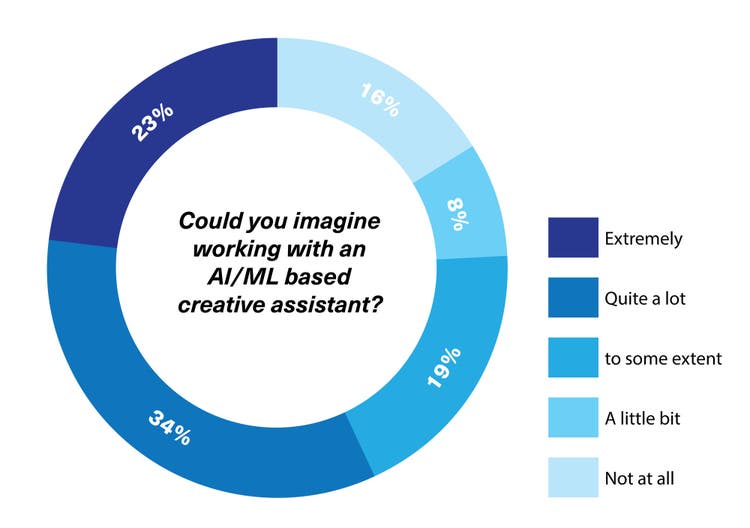Technology And Creativity Go Hand In Hand: Study
More than half of creative professionals expressed interest in artificial intelligence and machine learning and what they add to the creative process, according to a new study by Pfeiffer Consulting, commissioned by Adobe.

This article is part of our October 2018 series about the state of design and creativity. Click here for more.
Creative professionals see technology—both hardware and software—as essential to performing their jobs.
That’s the key finding of a new study by Pfeiffer Consulting, commissioned by Adobe (CMO.com is owned by Adobe). The study is based on qualitative research in which Pfeiffer interviewed 75+ creative professionals in the United States, the United Kingdom, and Germany. Respondents were hand-picked and ranged from having two to 35 years of work experience.
According to the research, more than half of respondents expressed interest in artificial intelligence (AI) and machine learning and what they add to the creative process. Just 12% of respondents said they were totally uninterested.
The general attitude, according to the study, is that creatives are not worried about these technologies taking over their jobs because creativity, they believe, is profoundly human.

“Creatives were on the fence when it came to AI just a few months ago,” said Chris Duffey, senior manager of AI strategic development at Adobe, in an exclusive interview with CMO.com. “Today they realize that AI is in much of the technology they’re already using, and it’s making things more intuitive than previously perceived.”
Seventy-four percent of respondents noted that they spend more than half their time on tedious, uncreative tasks, which is where they see the most potential for AI and machine learning.
“I think there’s been an overemphasis on the tech piece over the past couple of years, and today we are at a place with AI where creatives can get back to that core, instinctual affinity for creating and being makers,” Duffey said. “AI is going to allow them to move from creatives to creators.”
When exploring perceptions around AI-powered creative assistants, respondents indicated they were open to trying them. Eighty-nine percent stated they would be interested in a creative AI assistant that reduces drudgery, 81% said they would try one that teaches new features, and 77% said they would use an AI assistant that helps with image search. In addition, 52% expressed interest in an AI assistant that evaluates audience response, and 42% said they liked the idea of an assistant that provides creative variations.

“This study showed that creativity is not just about what you create, but why you create it,” said Andreas Pfeiffer, president of Pfeiffer Consulting, who directly conducted the research interviews with respondents. “It was derived that creativity is a process and a life journey in which technologies like AI can enhance human creativity, but cannot replace a human’s creative spark.”
When asked what kind of creative work they would like to do more of if it were easier—among AI’s promises— 43% of U.S. respondents cited motion graphics. In Europe, 3D modeling and animation took the top spot.
The study also pointed out that AI and machine learning will have a democratizing effect on creativity, allowing more ‘casual creatives’ to produce good-looking results. “Creative pros will be enabled to continue to evolve – to new and more complex creative disciplines like 3D and immersive design, and to make new breakthroughs in original, disruptive thinking,” Duffey said.
View the full report below, or click here to view it on SlideShare.
https://www.slideshare.net/slideshow/embed_code/key/MRxVQnyw4yeliG[
